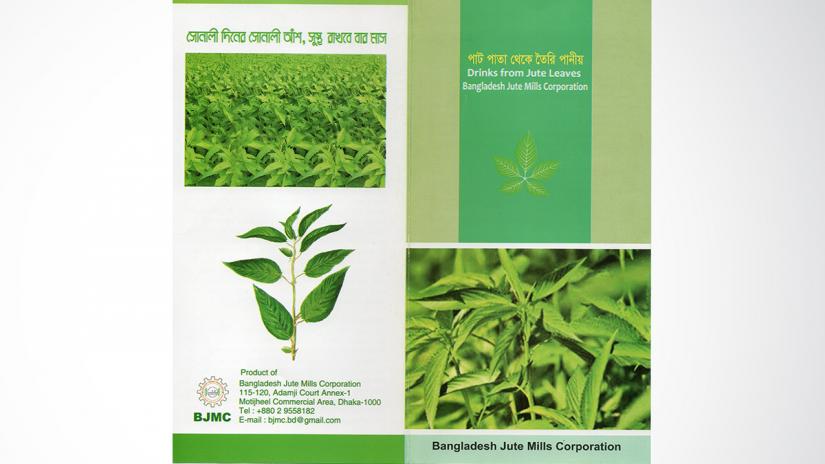 Tea made from jute leaves has already caused a stir in Europe with the product being imported to four European destinations as an organic item. However, specialists feel that the ‘organic’ identity may be a reason for concern because it’s not confirmed if the jute tea is one hundred per cent organic or not.
Tea made from jute leaves has already caused a stir in Europe with the product being imported to four European destinations as an organic item. However, specialists feel that the ‘organic’ identity may be a reason for concern because it’s not confirmed if the jute tea is one hundred per cent organic or not.
The inventor of the tea has said that a decision in this regard will be reached after thorough analysis, which may take another two years.
The innovator has said that the tea may be released in Bangladesh market in March-April, 2019.
Of the ten tonnes produced so far, 2.5 tonnes have been exported with another three tonnes in the pipeline. Deputy-secretary of the ministry of jute and textiles has said that to declare a product organic the manufacturing area has to be termed an organic zone first.
Saying that India has such zones and Bangladesh doesn’t, the official added: “let’s say you are producing an item using organic fertiliser but due to rainfall, chemical fertiliser from another crop land flows into your land. In such a case the produce cannot be called one hundred per cent organic.” An adviser of the Bangladesh Jute Mills Corporation, BJMC, H M Ismail Khan, is the inventor of the tea and he said: “we have received positive results from testing the tea at ICDDRB, BSTI and other institutes.”
An adviser of the Bangladesh Jute Mills Corporation, BJMC, H M Ismail Khan, is the inventor of the tea and he said: “we have received positive results from testing the tea at ICDDRB, BSTI and other institutes.”
“The jute tea will be launched on 6 March, which is jute day.”
He said that when the PM was given tea from jute in 2016, she suggested adding Jasmine flavor to it which has been done along with two other flavours.
In ancient times, jute extraction was used in several civilisations as medicine while soup made from it was served to convalescing patients.
The tea will also be served to diabetics to see the results while it’s believed that arsenic patients will benefit from drinking this tea as it has the ability to flush out the toxic material.
 Others
Others
30912 hour(s) 55 minute(s) ago ;
Evening 07:49 ; Friday ; Apr 26, 2024
Jute tea being exported; hitting local markets soon
Send
Hitlar A Halim
Published : 03:30, Jan 14, 2019 | Updated : 10:38, Jan 15, 2019
Published : 03:30, Jan 14, 2019 | Updated : 10:38, Jan 15, 2019
0 ...0 ...
/tf/
Topics: Top StoriesExclusive
- KOICA donates medical supplies to BSMMU
- 5 more flights to take back British nationals to London
- Covid19: Rajarbagh, Mohammadpur worst affected
- Momen joins UN solidarity song over COVID-19 combat
- Covid-19: OIC to hold special meeting
- WFP begins food distribution in Cox’s Bazar
- WFP begins food distribution in Cox’s Bazar
- 290 return home to Australia
- Third charter flight for US citizens to return home
- Dhaka proposes to postpone D8 Summit
Unauthorized use of news, image, information, etc published by Bangla Tribune is punishable by copyright law. Appropriate legal steps will be taken by the management against any person or body that infringes those laws.
Bangla Tribune is one of the most revered online newspapers in Bangladesh, due to its reputation of neutral coverage and incisive analysis.
F R Tower, 8/C Panthapath, Shukrabad, Dhaka-1207 | Phone: 58151324; 58151326, Fax: 58151329 | Mob: 01730794527, 01730794528


